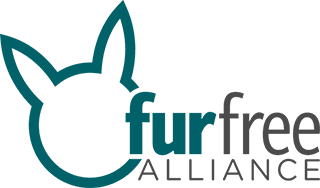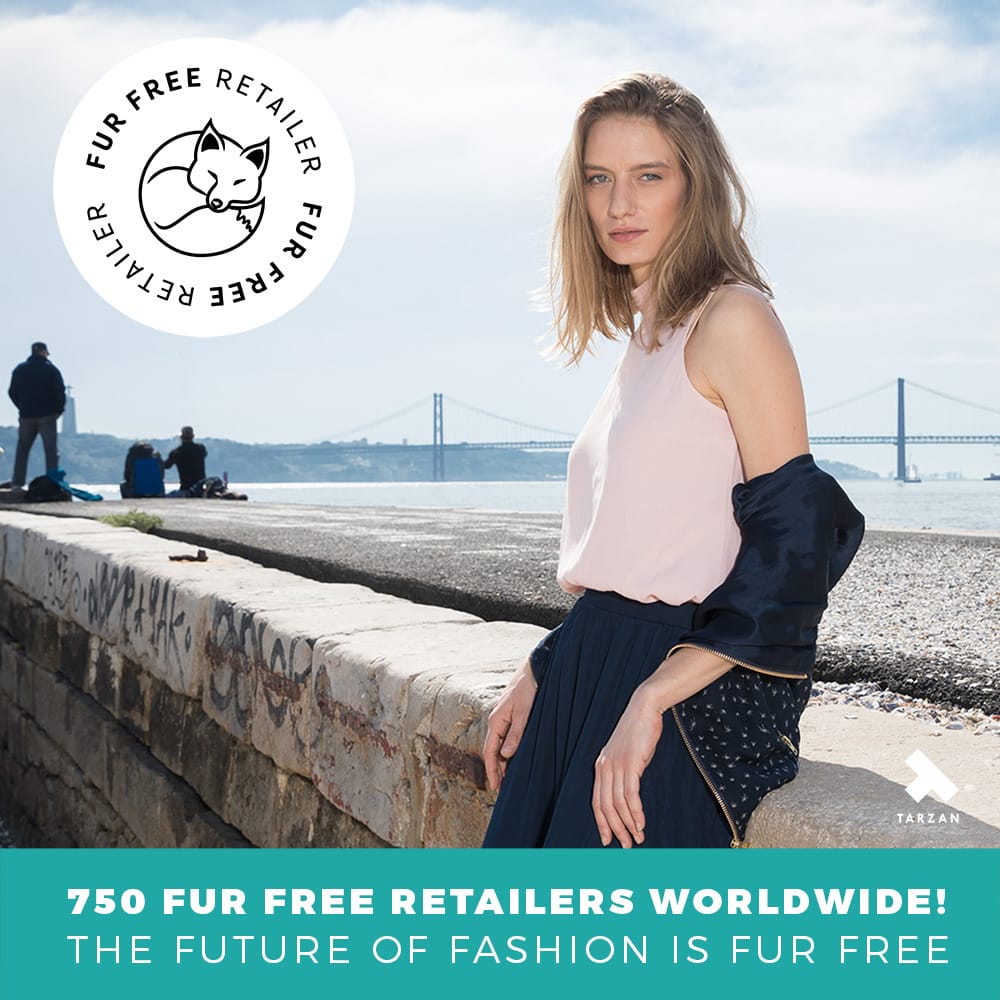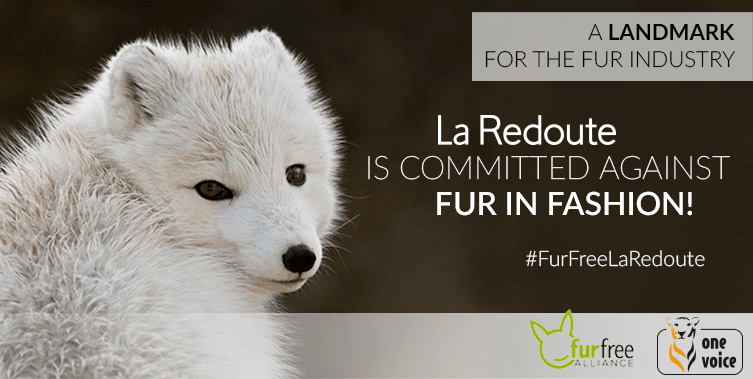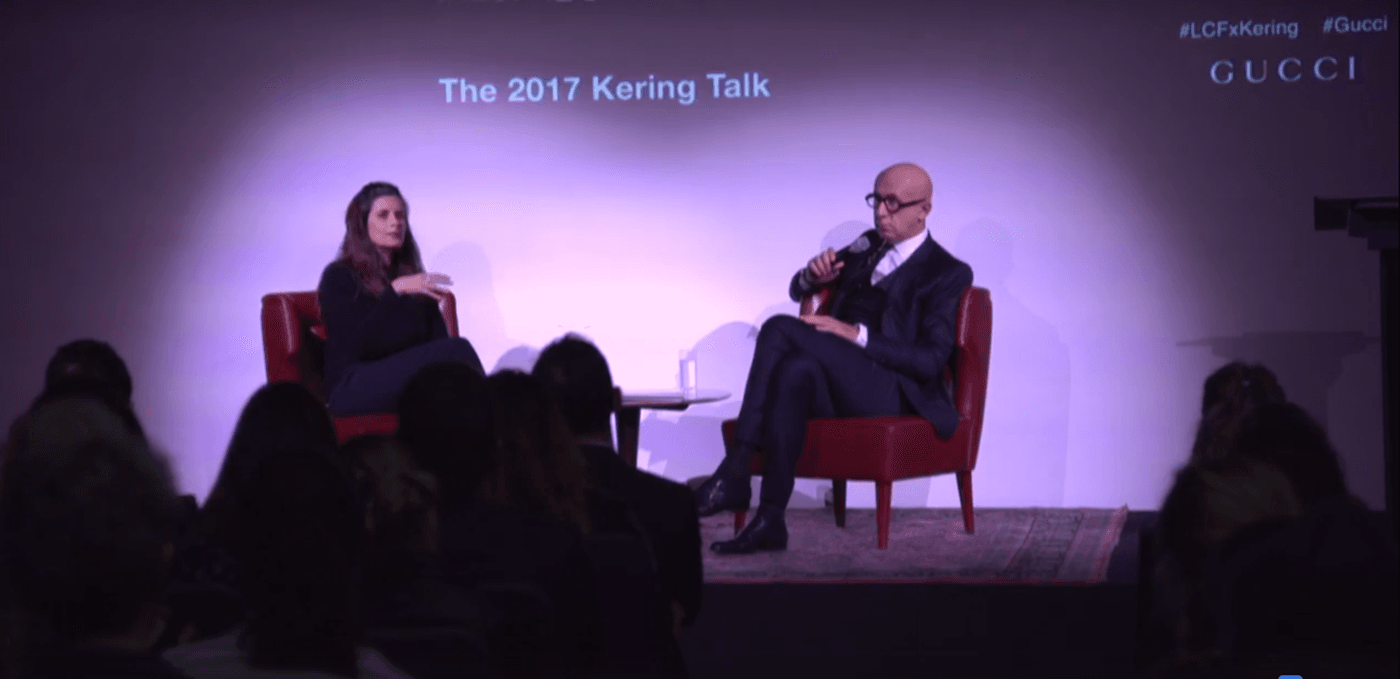
Fashion Giants Agree the Future of Fashion is Fur-Free
20 SEPTEMBER 2017 – The Fur Free Retailer program welcomes YOOX NET-A- PORTER as the 750th apparel company to join the program since its formation in 2006. The program is run in more than 20 countries worldwide by the Fur Free Alliance, an international coalition of animal protection organisations, and looks to connect fur-free influencers – like Giorgio Armani, HUGO BOSS, H&M and Inditex – to consumers seeking ethical goods. In celebration of the milestone, the program will be introducing a new brand identity and website.
The brand refresh comes at a time when a growing number of fashion giants are publicly embracing animal welfare with fur-free policies. INDITEX, the parent company to Zara, Massimo Dutti, Bershka and Pull and Bear, among others, and one of the early major fashion companies to join the program, says:
“The Fur Free Retailer Program is a pioneering initiative in the campaign to promote animal protection, providing a very positive impact on animal welfare and on the fashion retail industry. Inditex has a strong sense of responsibility and we are proud both of our long-standing commitment to fur-free fashion and our close partnership with the FFA, which has helped us to extend best practice to our suppliers and lead by example.”
Often, the decision to drop fur follows an educational process with the Fur Free Alliance and companies realise there is no humane way to keep wild animals in cages for their entire lives and the fur industry is too self-regulated and nontransparent. For the fashion multinational H&M, according to Mutlu Toksoz, H&M’s Sustainability Business Expert, the adoption of a fur-free policy was an ethical decision:
“H&M has a long-time ban on fur and we are working to end the killing of animals for their fur.”
Before announcing its fur-free policy with FFA members this summer, the $2 billion online luxury retailer YOOX Net-A-Porter surveyed more than 25,000 clients and found that a majority said they wanted YNAP to end its fur sales. The announcement of the most prominent retailer to drop fur “could have a knock-on effect across the fashion industry”, according to Newsweek. Brigit Oele, Fur Free Retailer Program Manager, says:
“There is an ongoing worldwide shift towards responsible and sustainable consumerism, that fashion companies are well aware off. Brands that value transparency and innovation are realising that fur production – and the inevitable cruelty associated with fur cage farming and commercial trapping – does not fit into that picture. The future of fashion inevitably is fur-free.”
“We have decided to adopt a different route and we are therefore giving our sustainable corporate strategy – in this case, animal protection – precedence over the ‘fast’ and ‘simple’ route to success,” HUGO BOSS said in its 2014 fur free announcement. “Contemporary customers are part of a generation which is re-evaluating their ethical and environmental values.”
Besides animal welfare and ethical consumerism, the environmental impact is another reason for companies to quit fur. Fur is a highly chemical and energy-consumptive product, that, compared to other materials, will always be the less sustainable choice. When companies look into their environmental footprint they quickly find dropping fur is the very first step towards more sustainable products.




